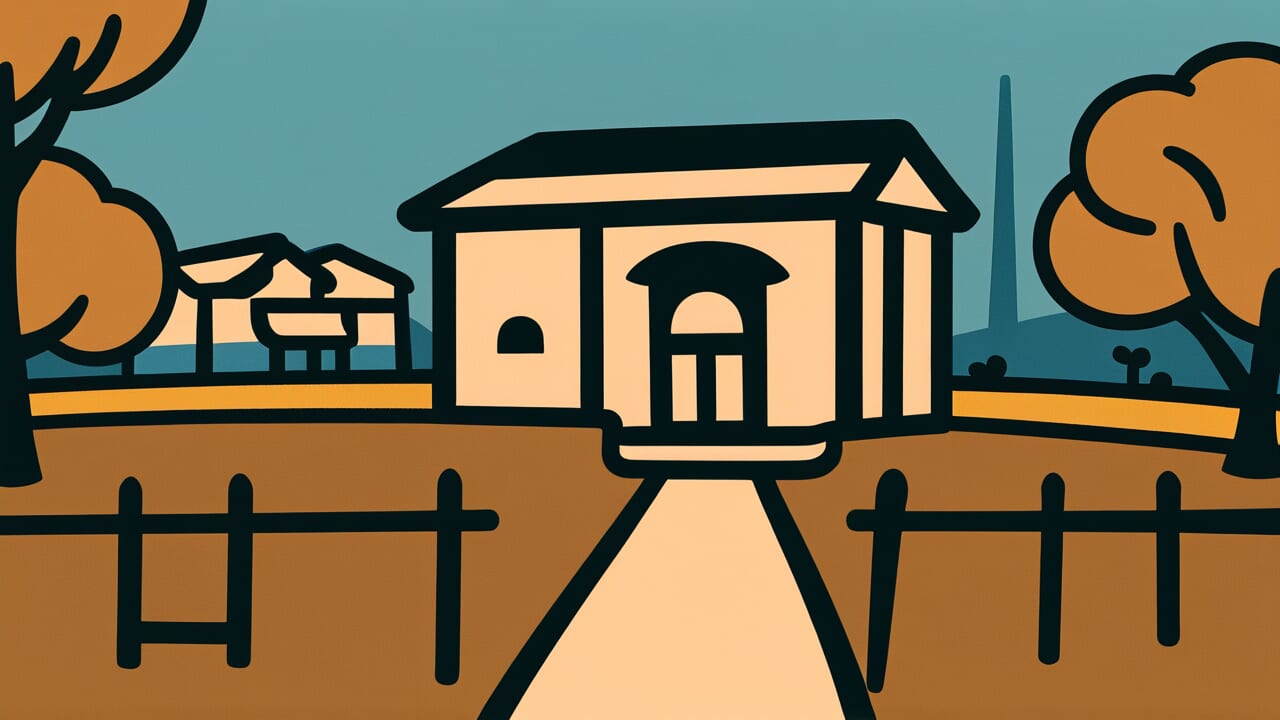How to Read “There is a capital in the countryside”
Hina ni miyako ari
Meaning of “There is a capital in the countryside”
“There is a capital in the countryside” means that rural and regional areas have impressive places and excellent things that rival those in the city.
Even in the countryside that may seem to have nothing at first glance, you can actually find unexpectedly wonderful buildings and facilities, beautiful scenery, or advanced culture and technology when you visit.
This proverb teaches us not to judge based on appearances or preconceptions alone. It reminds us that cities aren’t the only places of excellence.
Rural areas have their own unique value and charm. People use this saying when they unexpectedly encounter magnificent shrines and temples while traveling, or discover sophisticated facilities in a country town.
Today, the meaning of this proverb is being reevaluated in contexts like regional revitalization and rediscovering local attractions.
Origin and Etymology
The exact literary origin of this proverb hasn’t been identified. However, we can make interesting observations from how the words are constructed.
The character “鄙” (hina) is an old word meaning countryside or frontier far from the capital. In ancient Japan, a cultural sphere formed centered on the capital.
Regions distant from this center were called “hina.” Meanwhile, “都” (miyako) meant the capital, the center of politics and culture, and symbolized a refined place.
This proverb combining these two contrasting words likely spread during the Edo period or later. At that time, regional castle towns and post towns developed independently alongside major cities like Kyoto and Edo.
Impressive architecture and cultural facilities were built in rural areas too. Places throughout the country showed prosperity rivaling the capital.
Against this historical backdrop, the proverb was probably born to express the discovery and surprise that “you can’t underestimate the countryside—there are impressive places that match the capital.”
Within the contrast between center and region, it became established among people as words that helped them recognize the value of rural areas.
Usage Examples
- When I visited a small regional town, there was a surprisingly magnificent art museum—truly “there is a capital in the countryside”
- I let my guard down thinking it was the countryside, but this region preserves wonderful traditional craft techniques—this is exactly what “there is a capital in the countryside” means
Universal Wisdom
The proverb “There is a capital in the countryside” contains deep insight into the framework of “center and periphery” that humans possess.
We humans tend to divide things into center and periphery. Cities are the center and countryside is peripheral. Famous places are central and unknown places are peripheral.
This cognitive framework is necessary for understanding the world efficiently. But it’s also a major pitfall.
This proverb has been passed down through generations because humans have always repeated the mistake of “overlooking what’s invisible.”
We assume that things that aren’t famous, things that don’t stand out, things far from the center have no value.
But in reality, such places often harbor culture that has developed uniquely or traditions that have been carefully preserved.
These words teach the importance of viewing the world without the tinted glasses of preconception. Value isn’t distributed evenly, but it’s not concentrated only in the center either.
There is unexpected wonder in unexpected places. The joy of that discovery enriches our lives.
Perhaps our ancestors packed this essential human joy into these brief words.
When AI Hears This
The phenomenon of urban elements existing within rural areas is actually a fractal structure that exists universally in nature.
A fractal is a property where parts repeat the same shape as the whole. For example, if you take a small floret from broccoli, it has the same broccoli shape again.
The essence this proverb shows is that social structures also possess this fractal nature.
Cities have bustling downtown areas and quiet residential neighborhoods. Within those residential neighborhoods are lively shopping streets and tranquil areas.
Conversely, the countryside also has central areas, and within those central areas are core locations. In other words, the relationship of “center and periphery” repeats in a self-similar way at every scale.
What’s interesting is that this nested structure has no end. No matter how much you zoom in or out, the same pattern appears.
Just as the length of a coastline changes depending on the measurement scale, the boundary between urban and rural becomes infinitely complex depending on the resolution of observation.
From this perspective, urban and rural aren’t opposing concepts but merely different expressions of the same structural principle.
Human society, like the natural world, is formed through fractal self-organization. This proverb can be said to be words that intuitively capture this mathematical truth.
Lessons for Today
What this proverb teaches us today is the courage to view the world without preconceptions.
We live in an age of information overload. Ranking sites, reviews, and social media reputations seem to predetermine which places to visit, what to see, and what has value.
But if we rely too much on such information, we might miss what’s truly important.
Places that aren’t famous, regions that aren’t getting attention, facilities that aren’t trending—in such “peripheries,” discoveries meant just for you might be waiting.
Whether in travel, work, or human relationships, if you only look at what’s mainstream, the richness of life is cut in half.
What matters is the attitude of walking with your own feet and confirming with your own eyes.
The small town at the edge of the map, the old building no one talks about, the back alley not in the guidebook—try visiting such places.
Surely wonderful encounters you never expected will be waiting for you. After all, value doesn’t exist only in famous places.



Comments